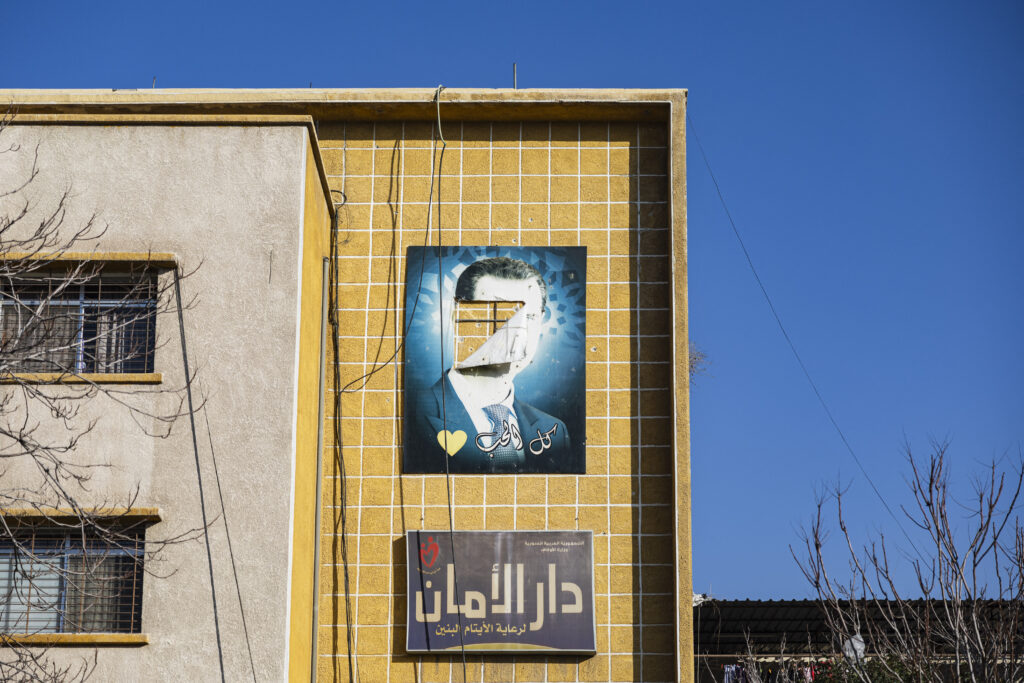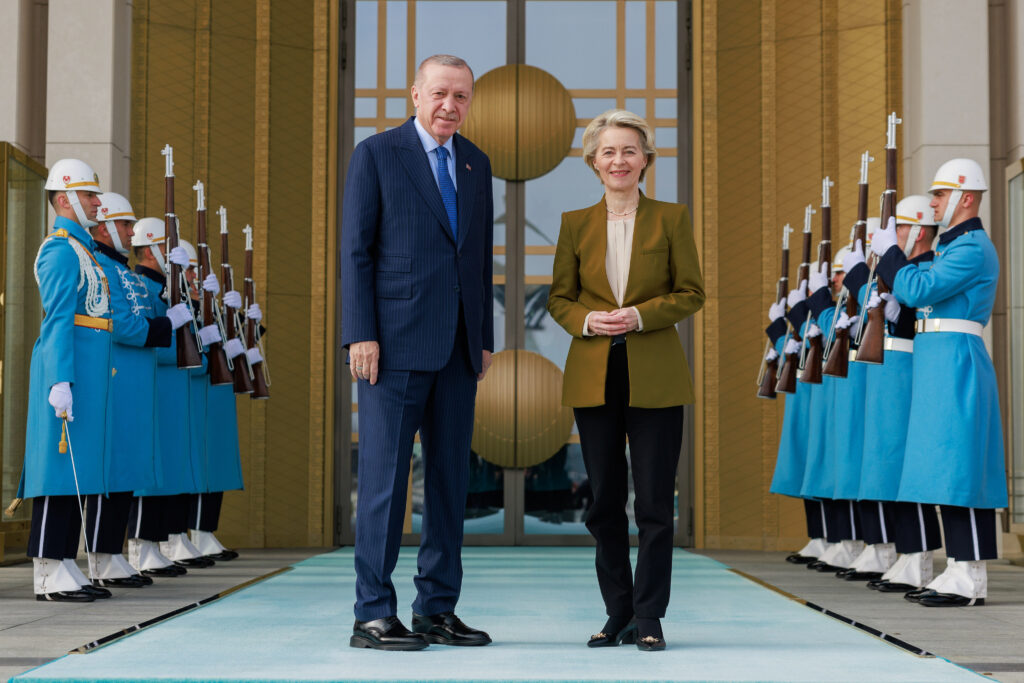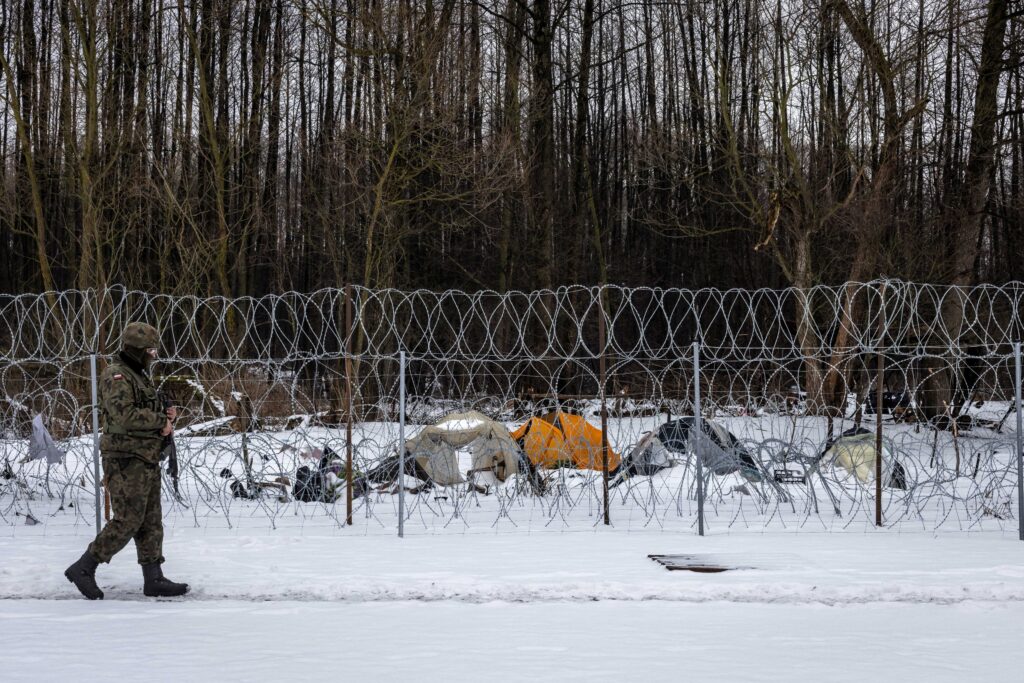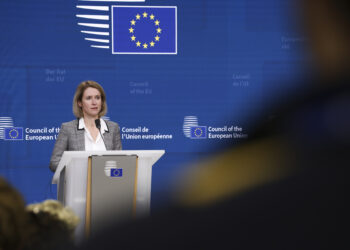Brussels – For those who still had doubts about the fact that migration is powerfully back at the heart of the European political agenda, it is enough to look at the letter Commission President Ursula von der Leyen addressed to the heads of state and government of the EU countries, who will meet tomorrow (Dec. 18) in Brussels for the last European Council of the year.
Much of the letter dated Dec. 16 revolves around the “new Syria” and the potential destabilization that the fall of the dictatorial regime of Bashar al-Assad implies for the entire Middle East region. However, it addresses other crucial issues, like the new Pact on Migration and Asylum implementation, a new return mechanism, and the defense of the EU’s eastern borders from “hybrid threats” from Moscow and Minsk.

Migration in the spotlight
For about a couple of years now, the head of the EU executive has made a habit of directly addressing the leaders of the 27 member states in preparation for European summits: an informal practice not envisaged by the Treaties, which seems to want to emulate (critics would say usurp) the prerogatives of the president of the European Council – first in the person of Charles Michel and now António Costa – who, according to the Treaties, is tasked with the fundamental role of coordinating the positions of national governments and, above all, dictating the meeting agendas of what remains the most important of the EU institutions.
Be that as it may, it is clear that, even more than in her first mandate, in her second term at the head of the Berlaymont Palace, the popular German will focus much of her efforts on managing migration flows, particularly irregular ones, to the Union. The watchword seems to be for more coordination among the chancelleries and between them and Brussels. The North Star, as was to be expected in an Old Continent that moved sharply to the right, that of the hardline against “irregular” human beings.
From Damascus with fury
Current events forcefully take center stage at the summit of European leaders tomorrow, with the dramatic developments in Syria in recent weeks topping the priority list outlined by von der Leyen. “Events of recent weeks in the Middle East have opened new opportunities for peace and stability in the region, but also brought new uncertainties about the way ahead,” the Commission president wrote, stressing that now “new ways of working” with the authorities in Damascus will be possible.
These, however, are still under evaluation by Brussels and the 27 member states, even though yesterday the EU High Representative Kaja Kallas confirmed that there were the first contacts with the HTS militias, the new heads (or presumed heads, at least for now) of Syria in the post-Assad era. The imperative is to support the reconstruction of the country, ravaged by fourteen years of bloody civil war, to avoid “new waves of refugees” to the EU, the former Estonian premier stated.
How? By engaging with regional partners, von der Leyen said. “We will need to help Lebanon, Jordan, and Turkey prepare for different eventualities, including contingency planning for unpredictable movements of people and new security challenges,” she explained in her letter, listing the benefits that collaborating with non-EU countries brings to managing refugee flows and refugees.
The collaboration will have to be deepened not only with the Arab states in the area but also with Turkey, the Western Balkans, and the North African Arc countries, from Egypt to Morocco to the Atlantic in Mauritania and Senegal. Filling the pockets of those who can stop the desperate people on the move before they reach the Union’s borders (for example, a new €1 billion check is on its way to Ankara, where von der Leyen was this morning), perhaps turning a blind eye to the respect of human rights.

Fortress Europe
After all, the strong securitization of European migration policy has become increasingly clear, especially in the heated discussions in recent months about the feasibility of building repatriation centers (otherwise known as external hotspots or return hubs) outside European borders. Von der Leyen reassured the heads of state and government that “a stronger legislative framework in the area of returns will be one of the first major proposals of the new College,” with a legislative proposal before the March 2025 EU summit.
The concepts of expulsions, returns, and safe third countries (where unwanted guests can physically be deported from member states) are no longer taboo, thanks to the political axis between the head of the EU executive and Italian Prime Minister Giorgia Meloni. The Commission is pursuing its “analysis of innovative ways to counter illegal migration, following up on priorities signaled by Member States,” the letter continues, stressing that it is necessary to “look at legal, operational, and practical aspects, as well as financial implications of such hubs, whilst respecting fundamental rights and the principle of non-refoulement.”
Implementation of the new Pact on Migration and Asylum, the cornerstone of von der Leyen’s first five-year term, will primarily follow the priorities outlined by the president in her letter yesterday: “improving the management of external borders; improving the efficiency and fairness of the Dublin system,” and guaranteeing “a more efficient management of reception systems and more efficient returns.”

While thinking about how to build external deportation centers, meanwhile, the Union’s eastern borders are being increasingly militarized in response to what Brussels calls “hybrid threats” from Russia and Belarus, which exploit migrants to destabilize European countries. The Berlaymont Palace president recalls the recent initiative to grant 170 million in funding for advanced surveillance systems at the Polish, Baltic, and Scandinavian borders, stressing that “we must protect ourselves.” In that cold corner of Europe, we will also allow violations of international law such as refoulements, provided they are “limited,” “temporary,” and “proportionate.”
English version by the Translation Service of Withub







